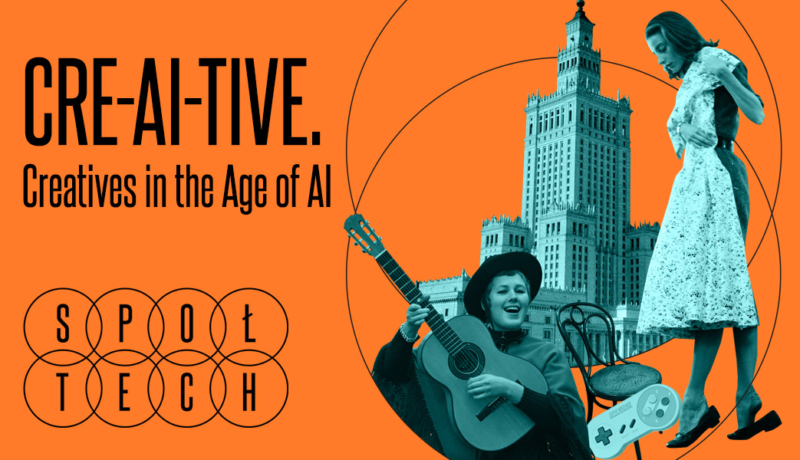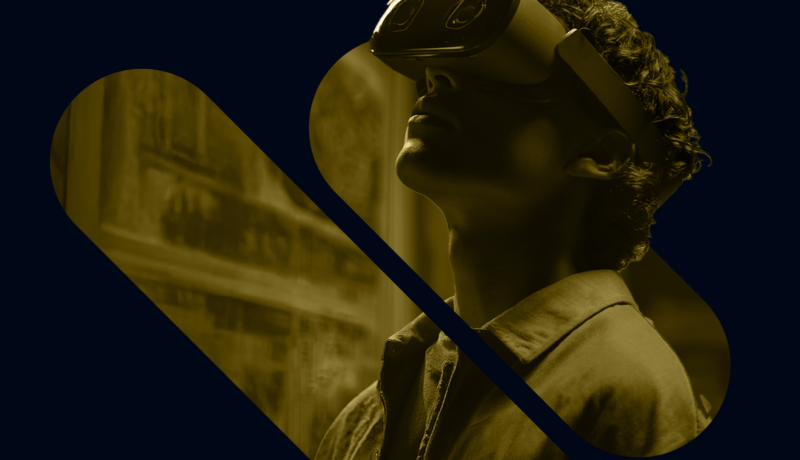The social aspects of technology
A healthy digital society must take into account the social dimension of technology—an assumption that has guided us from the beginning. We cannot focus solely on developing infrastructure, the digital economy, or the development of services and products, including artificial intelligence. Instead of talking about technologies, we want to talk about the social aspects of technology.
Caring for the social dimension of technology primarily means thinking about the users of technology. A digital society will not function well if it does not address their needs. It also means believing in development based on fundamental social values, not just faith in the power of technology.
This is also a matter of appropriate awareness. People who create and use the internet must understand that technologies impact social life but can also be shaped by people. They must have the competencies to use network technologies and the data available through them to meet various life needs. The internet should be a technology that helps us all.
When thinking about the social aspects of technology, we want to better understand the cultural and social effects of technological changes and digital presence. We want to know how digitization impacts our behaviors, cultural practices, and social bonds. How to build ethical, inclusive, and trustworthy digital tools. We study how creative industries change, how people create, and the processes of innovation and knowledge production. We also want politicians, businesses, and social organizations to base their strategies on knowledge about the digital society. This should be knowledge about specific realities and the Polish and European context, not generalities about abstract technological development.
By caring for the social dimension of technology, we also participate in the discussions surrounding the development of the latest technologies that have emerged in recent years—artificial intelligence, big data processing, online privacy, dominant technology narratives, and data activism. We understand our mission as taking care of the social dimension of new technologies that affect our society.
Activities
We participate in legislative processes where decisions are made regarding the direction of digitization and technology development. We believe that discussions on this topic cannot be based solely on economic premises—equally important is a vision grounded in understanding the needs of users and sustainable development. Digitization should not be understood merely as a modernization process involving the simple addition of new technologies. It is a transformation process affecting the entire society. We ensure that the human dimension of technology is not forgotten in public policy formation processes.
We seek ways to understand and analyze the social impact of the latest technologies, such as blockchain, the Internet of Things, and artificial intelligence. In our first project, “Future Not Made in the EU”, using speculative design methods, we demonstrated how bad copyright laws can limit innovative technological solutions that serve the common good.
In another project, “Shared Digital Europe”, we developed conceptual frameworks and key values for a new model of technology shaping in Europe. The four main values we defined are: the common good, strong public institutions, decentralization, and self-determination.
Research
We have been conducting research projects regularly for years. In 2012, we conducted the study “Cultural Circulation,” where we were the first to address the informal circulation of digital culture in Poland. Subsequent studies focused on intermediaries in such informal circulations (“Cultural Insiders”) and social attitudes towards copyright law (“Copyright in Times of Change”). We have also conducted numerous studies and evaluations of the digitization process of collections in cultural institutions (e.g., “Openness in Cultural Institutions”). For the Ministry of Development, we prepared an expert report on the value of the market based on open data and an evaluation of actions aimed at developing digital competencies. We also conducted an evaluation of the impact of introducing e-textbooks for the Joint Research Council, operating under the European Commission. Our program “Open Policy Index,” carried out for Creative Commons, is the first attempt to measure and compare state open policies in four areas (science, education, heritage, data) in 40 countries worldwide.
Reports
Together with our network of experts, we have published a series of publications on the social dimension of technology – “Data Companions,” “Polish Universities during the Pandemic,” “Digital Transitional States,” “From Media to Reality,” “Legal Ways to Fight Fake News,” “Remote-first,” “People, Technologies, Future.” In the report “AlgoPolska. Automated Decision-Making in the Service of Society” prepared together with the Jagiellonian Club, we show how automatic decision-making systems are implemented in various areas of life and functioning of society. We also present the balance of benefits and losses associated with the automation of decision-making and recommendations and directions for further analytical and regulatory work in five areas: cross-sectoral cooperation, data management, regulation, audit, education.
Developing Digital Competencies
For years, we have been actively involved in the debate on strategies for developing digital competencies—ensuring that public administration gives this aspect of the digital society the appropriate significance and addresses it in practice. We also believe that dispersed actions conducted by numerous organizations will be more effective if carried out within common strategic frameworks. Based on this assumption, we created, on behalf of the Ministry of Digitization, the Framework Catalog of Digital Competencies for Poland. In 2018, we analyzed the strategies for developing digital competencies of all European Union countries to provide guidelines for creating the Polish strategy based on their foundation.
Training
As part of the Erasmus+ project, we co-created a course for future and young journalists and those interested in working with data, building stories based on data, and combating disinformation – MediaNumeric Academy.
SpołTech Project
Created by experts, it is a space for reflection and conversation about technology, the future, and Poland. We have assembled an analytical team studying the social and cultural impact of digital technologies. People who believe that technologies should serve society. Learn more about SpołTech.





